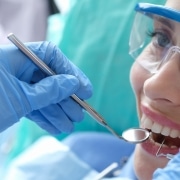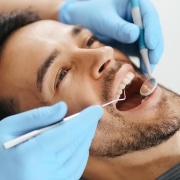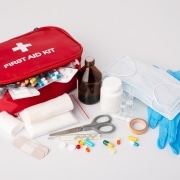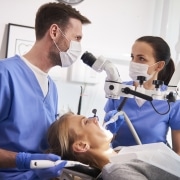Having a Dental Emergency? What to Know
Dental emergencies can be scary, but they’re far less scary when you’re working with a capable dentist in Beaver Dam and Owensboro, KY. At Dr. Travis Wilson Family Dentistry, we offer a range of emergency dental services. We’re your source for emergency dental care when something goes wrong. Here’s what to know about emergency dental services.
What Is Considered a Dental Emergency?
A dental emergency is any dental problem that needs to be addressed by a dentist immediately. There are many problems that require immediate dental treatment when they occur. Some examples of common dental emergencies include:
- Dental infection. A dental infection is an infection that occurs inside the tooth. A dental infection can be treated with root canal services in Beaver Dam and Owensboro, KY. If the infection isn’t treated as soon as possible, it may result in an extraction instead.
- Lost permanent tooth. A lost permanent tooth can be a scary problem to have, but if you see the dentist fast enough, they may be able to reattach your tooth.
Not sure if you’re having a dental emergency? Watch for symptoms like severe pain, or a tooth becoming chipped or cracked. If something like this happens, you may need immediate dental care.
What Should You Do If You’re Having a Dental Emergency?
If you’re having a dental emergency, contact your dentist as quickly as possible to get next steps. Your dentist can tell you what to do to treat your problem and help you save your tooth.
Having a Dental Emergency? Call Today
At Dr. Travis Wilson Family Dentistry, we’re here to help during a dental emergency. Call today to get help when a dental emergency happens.









